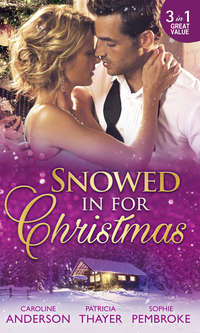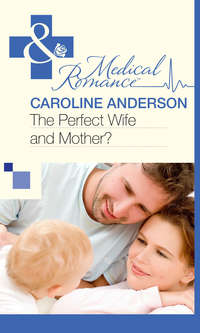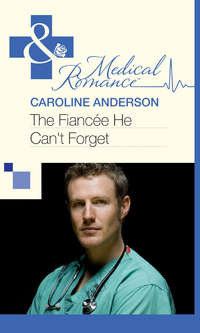
Полная версия
From Florence With Love: Valtieri's Bride / Lorenzo's Reward / The Secret That Changed Everything
He laughed at that. ‘I don’t think you’ll break me. Did you find everything you needed? How’s your room?’
She slipped her arm through his, conscious of the smell of him again, refreshed now by his shower and overlaid with soap and more of the citrusy cologne that had been haunting her nostrils all day. She wanted to press her nose to his chest, to breathe him in, to absorb the warmth and scent and maleness of him.
Not appropriate. She forced herself to concentrate.
‘Lovely. The bath was utter bliss. I can’t tell you how wonderful it was to get out of that awful dress. I hope Carlotta hasn’t burned it, I want to do it myself.’
He laughed again, a warm, rich sound that echoed round the courtyard, and scanned her body with his eyes. ‘It really didn’t do you justice,’ he said softly, and in the gentle light she thought she caught a glimpse of whatever it was she’d seen in his eyes at the airport.
But then it was gone, and he was opening the door and ushering her through to a big, brightly lit kitchen. Carlotta was busy at the stove, and the children were seated at a large table in the middle of the room, Antonino kneeling up and leaning over to interfere with what Lavinia was doing.
She pushed him aside crossly, and Massimo intervened before a fight could break out, diffusing it swiftly by splitting them up. While he was busy, Carlotta came and helped her to the table. She smiled at her gratefully.
‘I’m sorry to put you to so much trouble.’
‘Is no trouble,’ she said. ‘Sit, sit. Is ready.’
She sniffed, and smiled. ‘It smells wonderful.’
‘Buono. You eat, then you feel better. Sit!’
She flapped her apron at Lydia, and she sat obediently at the last place laid at the long table. It was opposite Francesca, and Massimo was at the end of the table on her right, bracketed by the two younger ones who’d been split up to stop them squabbling.
They were fractious—overtired, she thought guiltily, and missing their father. But Francesca was watching her warily. She smiled at the girl apologetically.
‘I’m sorry I kept your father away from you for so long. He’s been so kind and helpful.’
‘He is. He helps everybody. Are you better now?’
‘I’m all right. I’ve just got a bit of a headache but I don’t think it’s much more than that. I was so stupid. I tripped over the hem of my dress and fell down the steps of the plane and hit my head.’
Behind her, there was a clatter, and Francesca went chalk white, her eyes huge with horror and distress.
‘Scusami,’ she mumbled, and pushing back her chair, she ran from the room, her father following, his chair crashing over as he leapt to his feet.
‘Francesca!’ He reached the door before it closed, and she could hear his voice calling as he ran after her. Horrified, uncertain what she’d done, she turned to Carlotta and found her with her apron pressed to her face, her eyes above it creased with distress.
‘What did I say?’ she whispered, conscious of the little ones, but Carlotta just shook her head and picked up the pan and thrust it in the sink.
‘Is nothing. Here, eat. Antonino!’
He sat down, and Lavinia put away the book he’d been trying to tug away from her, and Carlotta picked up Massimo’s overturned chair and ladled food out onto all their plates.
There was fresh bread drizzled with olive oil, and a thick, rich stew of beans and sausage and gloriously red tomatoes. It smelt wonderful, tasted amazing, but Lydia could scarcely eat it. The children were eating. Whatever it was she’d said or done had gone right over their heads, but something had driven Francesca from the room, and her father after her.
The same something that had made Massimo go pale at the airport, as he’d knelt on the tarmac at her side? The same something that had made him stand, rigid with tension, staring grimly at a poster when he thought she was asleep in the room at the hospital?
She pushed back her chair and hopped over to the sink, where Carlotta was scrubbing furiously at a pot. ‘I’m sorry, I can’t eat. Carlotta, what did I say?’ she asked under her breath, and those old, wise eyes that had seen so much met hers, and she shook her head, twisting her hands in the dishcloth and biting her lips.
She put the pot on the draining board, and Lydia automatically picked up a tea towel and dried it, her hip propped against the edge of the sink unit as she balanced on her good leg. Another pot followed, and another, and finally Carlotta stopped scouring the pots as if they were lined with demons and her hands came to rest.
She hobbled over to the children, cleared up their plates, gave them pudding and then gathered them up like a mother hen.
‘Wait here. Eat. He will come back.’
They left her there in the kitchen, their footsteps echoing along a corridor and up stairs, and Lydia sank down at the table and stared blankly at the far wall, going over and over her words in her head and getting nowhere.
Carlotta appeared again and put Francesca’s supper in a microwave.
‘Is she coming down again? I want to apologise for upsetting her.’
‘No. Is all right, signorina. Her pàpa look after her.’ And lifting the plate out of the microwave, she carried it out of the room on a tray, leaving Lydia alone again.
She poked at her food, but it was cold now, the beans congealing in the sauce, and she ripped up a bit of bread and dabbed it absently in the stew. What had she said, that had caused such distress?
She had no idea, but she couldn’t leave the kitchen without finding out, and there was still a pile of washing up to do. She didn’t know where anything lived, but the table was big enough to put it all on, and there was a dishwasher sitting there empty.
Well, if she could do nothing else while she waited, she could do that, she told herself, and pushing up her sleeves, she hopped over to the dishwasher and set about clearing up the kitchen.
He had to go down to her—to explain, or apologise properly, at the very least.
His stomach growled, but he ignored it. He couldn’t eat, not while his daughter was just settling into sleep at last, her sobs fading quietly away into the night.
He closed his eyes. Talking to Lydia, dredging it all up again, was the last thing he wanted to do, the very last, but he had no choice. Leaning over Francesca, he pressed a kiss lightly against her cheek, and straightened. She was sleeping peacefully now; he could leave her.
Leave her, and go and find Lydia, if she hadn’t had the sense to pack up her things and leave. It seemed unlikely, but he couldn’t blame her.
He found her in the kitchen, sitting with Carlotta over a cup of coffee, the kitchen sparkling. He stared at them, then at the kitchen. Carlotta had been upstairs until a short while ago, settling the others, and the kitchen had been in chaos, so how?
‘She’s OK now,’ he said in Italian. ‘Why don’t you go to bed, Carlotta? You look exhausted and Roberto’s worried about you.’
She nodded and got slowly to her feet, then rested her hand on Lydia’s shoulder and patted it before leaving her side. ‘I am tired,’ she said to him in Italian, ‘but you need to speak to Lydia. I couldn’t leave her. She’s a good girl, Massimo. Look at my kitchen! A good, kind girl, and she’s unhappy. Worried.’
He sighed. ‘I know. Did you explain?’
‘No. It’s not my place, but be gentle with her—and yourself.’ And with that pointed remark, she left them alone together.
Lydia looked up at him and searched his eyes. ‘What did she say to you?’
He gave her a fleeting smile. ‘She told me you were a good, kind girl. And she told me to be gentle with you.’
Her eyes filled, and she looked away. ‘I don’t know what I said, but I’m so, so sorry.’
His conscience pricked him. He should have warned her. He sighed and scrubbed a hand through his hair.
‘No. I should be apologising, not you. Forgive us, we aren’t normally this rude to visitors. Francesca was upset.’
‘I know that. Obviously I made it happen. What I don’t know is why,’ she said, looking up at him again with griefstricken eyes.
He reached for a mug, changed his mind and poured himself a glass of wine. ‘Can I tempt you?’
‘Is it one of yours?’
‘No. It’s a neighbour’s, but it’s good. We could take it outside. I don’t know if it’s wise, though, with your head injury.’
‘I’ll take the risk,’ she said. ‘And then will you tell me what I said?’
‘You know what you said. What you don’t know is what it meant,’ he said enigmatically, and picking up both glasses of wine, he headed for the door, glancing back over his shoulder at her. ‘Can you manage, or should I carry you?’
Carry her? With her face pressed up against that taunting aftershave, and the feel of his strong, muscled arms around her legs? ‘I can manage,’ she said hastily, and pushing back her chair, she got to her feet and limped after him out into the still, quiet night.
She could hear the soft chirr of insects, the sound of a motorbike somewhere in the valley below, and then she saw a single headlight slicing through the night, weaving and turning as it followed the snaking road along the valley bottom and disappeared.
He led her to a bench at the edge of the terrace. The ground fell away below them so it felt as if they were perched on the edge of the world, and when she was seated he handed her the glass and sat beside her, his elbows propped on his knees, his own glass dangling from his fingers as he stared out over the velvet blackness.
For a while neither of them said anything, but then the tension got to her and she broke the silence.
‘Please tell me.’
He sucked in his breath, looking down, staring into his glass as he slowly swirled the wine before lifting it to his lips.
‘Massimo?’ she prompted, and he turned his head and met her eyes. Even in the moonlight, she could see the pain etched into his face, and her heart began to thud slowly.
‘Angelina died of a brain haemorrhage following a fall,’ he began, his voice expressionless. ‘Nothing serious, nothing much at all, just a bit of a bump. She’d fallen down the stairs and hit her head on the wall. We all thought she was all right, but she had a bit of a headache later in the day, and we went to bed early. I woke in the night and she was missing, and I found her in the kitchen, slumped over the table, and one side of her face had collapsed.’
Lydia closed her eyes and swallowed hard as the nausea threatened to choke her. What had she done? Not just by saying what she had at the table—the same table? But by bringing this on all of them, on Claire, on him, on the children—most especially little Francesca, her eyes wide with pain and shock, fleeing from the table. The image would stay with her forever.
‘It wasn’t your fault,’ he said gently. ‘You weren’t to know. I probably should have told you—warned you not to talk about it in that way, and why. I let you walk right into it.’
She turned back to him, searching his face in the shadows. She’d known something was wrong when he was bending over her on the tarmac, and again later, staring at the poster. And yet he’d said nothing.
‘Why didn’t you tell me? I knew something was wrong, something else, something more. Luca seemed much more worried than my condition warranted, even I knew that, and he kept looking at you anxiously. I thought he was worried about me, but then I realised it was you he was worried about. I just didn’t know why. You should have told me.’
‘How could I? You had a head injury. How could I say to you, “I’m sorry, I’m finding this a bit hard to deal with, my wife died of the same thing and I’m a bit worried I might lose you, too.” How could I say that?’
He’d been worried he could lose her?
No. Of course he hadn’t meant that, he didn’t know her. He meant he was worried she might be about to die, too. Nothing more than that.
‘You should have left us there instead of staying and getting distressed. I had no business tangling you all up in this mess—oh, Massimo, I’m so sorry.’
She broke off, clamping her teeth hard to stop her eyes from welling over, but his warm hand on her shoulder was the last straw, and she felt the hot, wet slide of a tear down her cheek.
‘Cara, no. Don’t cry for us. It was a long time ago.’
‘But it still hurts you, and it’ll hurt you forever,’ she said unevenly.
‘No, it just brought the memories back. We’re all right, really. We’re getting there. Francesca’s the oldest, she remembers Angelina the most clearly, and she’s the one who bears the brunt of the loss, because when I’m not there the little ones turn to her. She has to be mother to them, and she’s been so strong, but she’s just a little girl herself.’
He broke off, his jaw working, and she laid her hand gently against it and sighed.
‘I’m so sorry. It must have been dreadful for you all.’
‘It was. They took her to hospital, and she died later that day—she was on life support and they tested her brain but there was nothing. No activity at all. They turned off the machine, and I came home and told the children that their mother was gone. That was the hardest thing I’ve ever had to do in my life.’
His voice broke off again, turning away this time, and Lydia closed her eyes and swallowed the anguished response. There was nothing she could say that wouldn’t be trite or meaningless, and so she stayed silent, and after a moment he let out a long, slow breath and sat back against the bench.
‘So, now you know,’ he said, his voice low and oddly flat.
Wordlessly, she reached out and touched his hand, and he turned it, his fingers threading through hers and holding on tight.
They stayed like that for an age, their hands lying linked between them as they sipped their wine, and then he turned to her in the dim light and searched her face. He’d taken comfort from her touch, felt the warmth of her generous spirit seeping into him, easing the ache which had been a part of him for so long.
How could she do that with just a touch?
No words. Words were too hard, would have been trite. Did she know that?
Yes. He could see that she did, that this woman who talked too much actually knew the value of silence.
He lifted her hand and pressed it to his lips, then smiled at her sadly. ‘Did you eat anything?’
She shook her head. ‘No. Not really.’
‘Nor did I. Shall we see what we can find? It’s a very, very long time since breakfast.’
It wasn’t exactly haute cuisine, but the simple fare of olive bread and ham and cheese with sweetly scented baby plum tomatoes and a bowl of olive oil and balsamic vinegar just hit the spot.
He poured them another glass of wine, but it didn’t seem like a good idea and so she gave him the second half and he found some sparkling water for her. She realised she’d thought nothing of handing him her glass of wine for him to finish, and he’d taken it without hesitation and drunk from it without turning a hair.
How odd, when they’d only met a scant twelve hours ago. Thirteen hours and a few minutes, to be more exact.
It seemed more like a lifetime since she’d watched him getting out of the taxi, wondered if he’d be The One to make it happen. The guy she’d been talking to was funny and seemed nice enough, but he wasn’t about to give her a lift and she knew that. But Massimo had looked at her as he’d gone into the Jet Centre foyer, his eyes meeting hers and locking …
She glanced up, and found him watching her with a frown.
‘Why are you frowning?’ she asked, and his mouth kicked up a fraction in one corner, the frown ironed out with a deliberate effort.
‘No reason. How’s your head now?’
She shrugged. ‘OK. It just feels as if I fell over my feet and spent the day hanging about in a hospital.’ It was rather worse than that, but he didn’t need to know about every ache and pain. The list was endless.
She reached out and covered his hand. ‘Massimo, I’m all right,’ she said softly, and the little frown came back.
‘Sorry. It’s just a reflex. I look after people—it’s part of my job description. Everyone comes to me with their problems.’
She smiled at him, remembering her conversation with Francesca.
‘I’m sorry I kept your father away from you for so long. He’s been so kind and helpful.’
‘He is. He helps everybody.’
‘You’re just a fixer, aren’t you? You fix everything for everybody all the time, and you hate it when things can’t be fixed.’
His frown deepened for a moment, and then he gave a wry laugh and pulled his hand away, swirling the wine in her glass before draining it. ‘Is it so obvious?’
She felt her lips twitch. ‘Only if you’re on the receiving end. Don’t get me wrong, I’m massively grateful and just so sorry I’ve dragged you into this awful mess and upset everyone. I’m more than happy you’re a fixer, because goodness only knows I seemed to need one today. I think I need a guardian angel, actually. I just have such a gift for getting into a mess and dragging everybody with me.’
She broke off, and he tipped his head on one side and that little crease between his eyebrows returned fleetingly. ‘A gift?’
She sighed. ‘Jen’s accident was sort of my fault.’
He sat back, his eyes searching hers. ‘Tell me,’ he said softly, so she did.
She told him about Russell, about their trip to her parents’ farm for the weekend, because Jen and Andy were going to be there as well and she hadn’t seen them for a while. And she’d shown him the farm, and he’d seen the quad bike, and suggested they went out on it so she could show him all the fields.
‘I didn’t want to go with him. He was a crazy driver, and I knew he’d want to go too fast, so I said no, but then Jen offered to show him round. She wanted to get him alone, to threaten him with death if he hurt me, but he hurt her instead. He went far too fast, and she told him to stop but he thought she was just being chicken and she wasn’t, she knew about the fallen tree hidden in the long grass, and then they hit it and the quad bike cartwheeled through the air and landed on her.’
He winced and closed his eyes briefly. ‘And she ended up in a wheelchair?’
‘Not for a few weeks. She had a fractured spine, and she was in a special bed for a while. It wasn’t displaced, the spinal cord wasn’t severed but it was badly bruised and it took a long time to recover and for the bones to heal. She’s getting better now, she’s starting to walk again, but she lost her job and so did Andy, so he could look after her. He took away everything from them, and if I’d gone with him, if it had been me, then I might have been able to stop him.’
‘You really think so? He sounds like an idiot.’
‘He is an idiot,’ she said tiredly. ‘He’s an idiot, and he was my boss, so I lost my job, too.’
‘He sacked you?’
She gave him a withering look. ‘I walked … and then his business folded without me, and he threatened to sue me if I didn’t go back. I told him to take a flying hike.’
‘What business was he in?’
‘He had a restaurant. I was his chef.’
Hence the tidy kitchen, he realised. She was used to working in a kitchen, used to bringing order to chaos, used to the utensils and the work space and the arrangement of them that always to him defied logic. And his restaurant had folded without her?
‘You told me you were a cook,’ he rebuked her mildly. ‘I didn’t realise you were a chef.’
She quirked an eyebrow at him mockingly. ‘You told me you were a farmer and you live in a flipping fortress! I think that trumps it,’ she said drily, and he laughed and lifted his glass to her.
‘Touché,’ he said softly, and her heart turned over at the wry warmth in his eyes. ‘I’m sorry,’ he went on. ‘Sorry about this man who clearly didn’t deserve you, sorry about your sister, sorry about your job. What a mess. And all because he was a fool.’
‘Absolutely.’
‘Tell me more about him.’
‘Like what?’
‘Like why your sister felt she needed to warn him not to hurt you. Had you been hurt before?’
‘No, but she didn’t really like him. He wasn’t always a nice man, and he took advantage of me—made me work ridiculous hours, treated me like a servant at times and yet he could be a charmer, too. He was happy enough to talk me into his bed once he realised I was a good chef—sorry, you really didn’t need to know that.’
He smiled slightly. ‘Maybe you needed to say it,’ he suggested, and her laugh was a little brittle.
‘There are so many things I could tell you about him. I said I was a lousy judge of character. I think he had a lot in common with Nico, perhaps.’
He frowned. ‘Nico?’
‘The guy at the airport?’
‘Yes, I know who you mean. In what way? Was he a drinker?’
‘Yes. Definitely. But not just a drinker. He was a nasty drunk, especially towards the end of our relationship. He seemed to change. Got arrogant. He used to be quite charming at first, but it was just a front. He—well, let’s just say he didn’t respect women either.’
His mouth tightened. ‘I’m sorry. You shouldn’t have had to tolerate that.’
‘No, I shouldn’t. So—tell me about your house,’ she said, changing the subject to give them both a bit of a break. She reached out and tore off another strip of bread, dunking it in the oil that she couldn’t get enough of, and looked up to see a strange look on his face. Almost—tender?
Nonsense. She was being silly. ‘Well, come on, then,’ she mumbled round the bread, and he smiled, the strange look disappearing as if she’d imagined it.
‘It’s very old. We’re not sure of the origins. It seems it might have been a Medici villa, but the history is a little cloudy. It was built at the time of the Florentine invasion.’
‘So how come your family ended up with it?’
His mouth twitched. ‘One of our ancestors took possession of it at the end of the seventeenth century.’
That made her laugh. ‘Took possession?’
The twitch again, and a wicked twinkle in his eye. ‘We’re not quite sure how he acquired it, but it’s been in the family ever since. He’s the one who renamed the villa Palazzo Valtieri.’
Palazzo? She nearly laughed at that. Not just a fortress, then, but a proper, full-on palace. Oh, boy.
‘I’ll show you round it tomorrow. It’s beautiful. Some of the frescoes are amazing, and the formal rooms in the part my parents live in are fantastic.’
‘Your parents live here?’ she asked, puzzled, because there’d been no mention of them. Not that they’d really had time, but—
‘Si. It’s a family business. They’re away at the moment, snatching a few days with my sister Carla and her new baby before the harvest starts, but they’ll be back the day after tomorrow.’
‘So how many rooms are there?’
He laughed. ‘I have no idea. I’ve never counted them, I’m too busy trying not to let it fall down. It’s crumbling as fast as we can patch it up, but so long as we can cheat time, that’s fine. It’s quite interesting.’
‘I’m sure it is. And now it’s your turn to run it?’
His mouth tugged down at the corners, but there was a smile in his eyes. ‘Si. For my sins. My father keeps trying to interfere, but he’s supposed to be retired. He doesn’t understand that, though.’
‘No. It must be hard to hand it over. My father wouldn’t be able to do it. And the harvest is just starting?’
He nodded. ‘The grape harvest is first, followed by the chestnuts and the olives. It’s relentless now until the end of November, so you can see why I was in a hurry to get back.’
‘And I held you up.’
‘Cara, accidents happen. Don’t think about it any more.’ He pushed back his chair. ‘I think it’s time you went to bed. It’s after midnight.’
Was it? When had that happened? When they were outside, sitting in the quiet of the night and watching the twinkling lights in the villages? Or now, sitting here eating bread and cheese and olive oil, drinking wine and staring into each other’s eyes like lovers?









